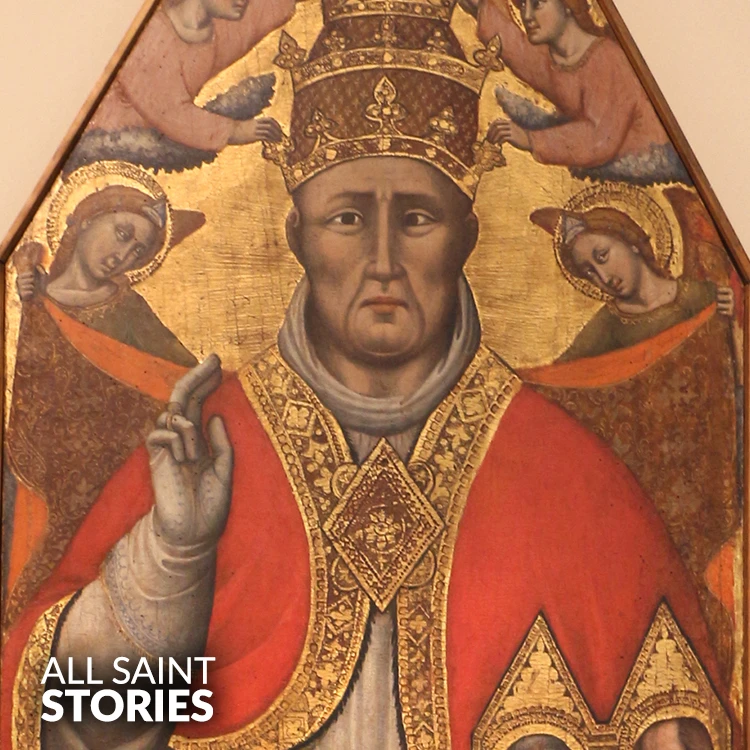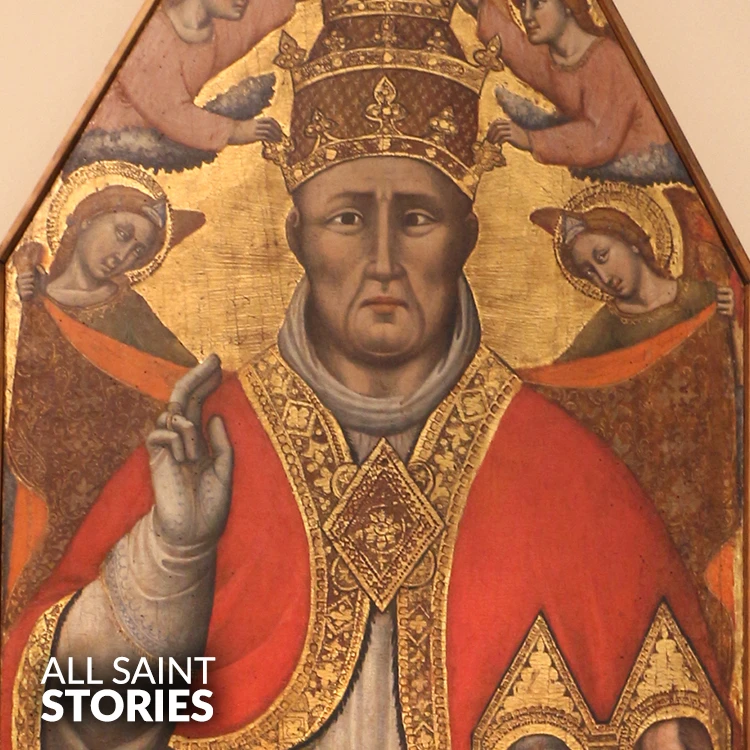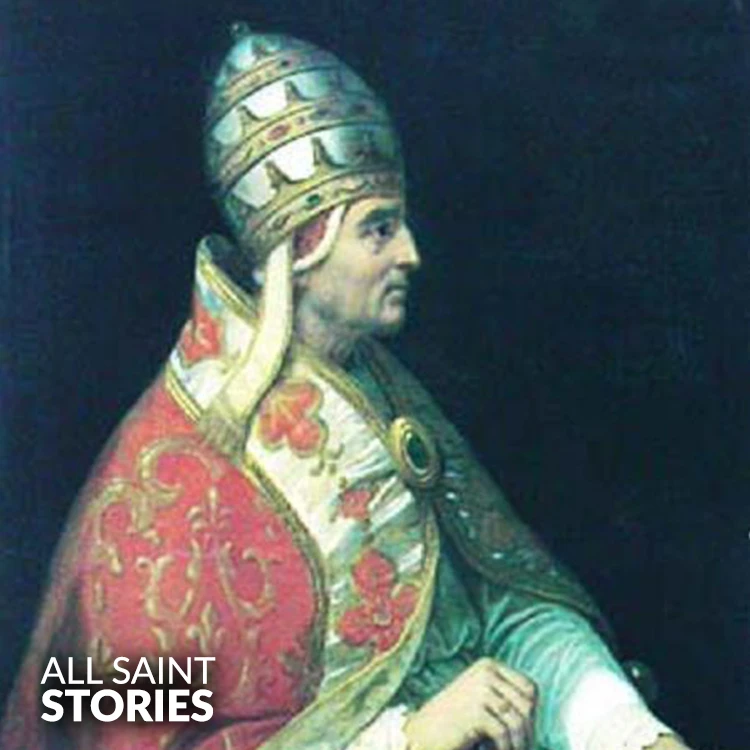Saint Pius V, faithful servant of God, you dedicated your life to the service of the Church, leading with humility, wisdom, and unwavering faith. Intercede for us, that we may remain steadfast in our devotion and committed to the truth of Christ's teachings. Pray for our holiness, our protection, and the guidance of the Holy Spirit in all our endeavors. Through Christ our Lord. Amen.
ST. PIUS V POPE
ST. PIUS V POPE

Pope St. Pius V was a 16th-century pope renowned for his firm stance in upholding Catholic traditions and implementing reforms set by the Council of Trent. He played a pivotal role in standardizing the Mass and strengthening the Catholic response to the Protestant Reformation. His efforts in moral reform, doctrinal purity, and combatting heresy left a lasting legacy in the Church.
Pope St. Pius V, born Antonio Ghislieri on January 17, 1504, in Bosco, Italy, served as the 225th pope from 1566 to 1572. His papacy is widely regarded as one of profound religious reform and unwavering dedication to preserving the doctrines of the Catholic Church. He entered the Dominican Order at the age of 14 and was known for his asceticism, prayerful nature, and intense devotion to the Church. Throughout his life, he worked to maintain doctrinal purity and fought against the spread of Protestantism, becoming a central figure in the Catholic Counter-Reformation.
Pope Pius V's papacy was heavily influenced by the reforms initiated by the Council of Trent, which he sought to enforce rigorously. One of his major contributions was the publication of the Roman Missal in 1570, a comprehensive compilation that standardized the Catholic Mass. This Roman Missal was used universally in the Catholic Church for centuries, shaping the liturgy and spiritual life of the Church for generations. Additionally, he also issued decrees that led to the creation of the Catechism of the Council of Trent and strengthened the role of seminaries in training priests.
In his battle against Protestantism, Pope Pius V took a strong stance in ensuring the Catholic faith remained uncompromised. He supported the Roman Inquisition, which was designed to address heresies and preserve the integrity of Catholic teachings. His aggressive stance against Protestantism made him an outspoken defender of Catholic orthodoxy.
One of the key events of his papacy was the Battle of Lepanto in 1571, where he played an instrumental role in organizing the Holy League, an alliance of Catholic nations that defeated the Ottoman fleet. This victory was significant in halting the Ottoman Empire's expansion into Europe and securing the future of Catholicism in the region. The success of the Holy League was celebrated in Rome, and Pope Pius V attributed the victory to the intercession of the Blessed Virgin Mary, instituting the Feast of Our Lady of Victory, which was later renamed the Feast of Our Lady of the Rosary.
Throughout his papacy, Pius V was committed to moral reform, emphasizing the importance of virtue and discipline within the clergy. His papal decrees aimed at enhancing the spiritual life of the clergy and faithful, ensuring that the doctrines taught by the Church were consistent and faithful to tradition. He also placed great emphasis on missionary work, supporting the spread of Catholicism in countries outside Europe, particularly in the Americas and Asia.
Pope St. Pius V passed away on May 1, 1572, after a papacy that was marked by a strong dedication to reform and the defense of Catholic teaching. He was canonized as a saint by Pope Clement XI in 1712, and his feast day is celebrated on April 30. Pius V is remembered as one of the most influential popes of the 16th century, particularly for his role in preserving Catholic orthodoxy and shaping the religious landscape of the time.
Video Not Found
The information on this website is compiled from various trusted sources. While we aim for accuracy, some details may be incomplete or contain discrepancies.
If you notice any errors or have additional information about this saint, please use the form on the left to share your suggestions. Your input helps us improve and maintain reliable content for everyone.
All submissions are reviewed carefully, and your personal details will remain confidential. Thank you for contributing to the accuracy and value of this resource.
Credits & Acknowledgments
- Anudina Visudhar (Malayalam) – Life of Saints for Everyday
by Msgr. Thomas Moothedan, M.A., D.D. - Saint Companions for Each Day
by A. J. M. Mausolfe & J. K. Mausolfe - US Catholic (Faith in Real Life) – Informational articles
- Wikipedia – General reference content and images
- Anastpaul.com – Saint images and reflections
- Pravachaka Sabdam (Malayalam) – Saint-related content and insights
We sincerely thank these authors and platforms for their valuable contributions. If we have unintentionally missed any attribution, please notify us, and we will make the correction promptly.
If you have any suggestion about ST. PIUS V POPE
Your suggestion will help improve the information about this saint. Your details will not be disclosed anywhere.
© 2026 Copyright @ www.allsaintstories.com




 English
English
 Italian
Italian
 French
French
 Spanish
Spanish
 Malayalam
Malayalam
 Russian
Russian
 Korean
Korean
 Sinhala
Sinhala
 Japanese
Japanese
 Arabic
Arabic
 Portuguese
Portuguese
 Bantu
Bantu
 Greek
Greek
 German
German
 Dutch
Dutch
 Filipino
Filipino